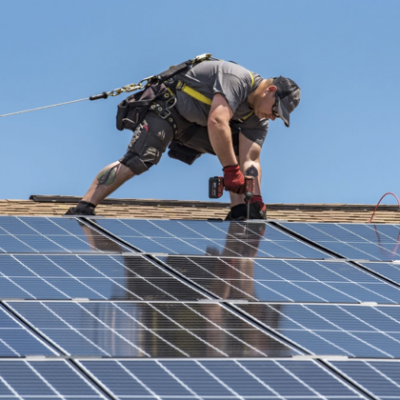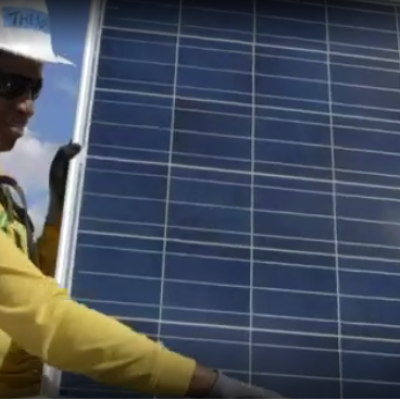Worcester Green Low-Income Housing Coalition: Solar sustains social safety nets in low income communities
When homelessness and housing instability expanded during the Great Recession, a group of low income housing and service providers in Worcester came together to figure out how to meet the increased need for assistance at a time when the funding available to provide support was in decline. The solution? Solar and other energy-saving, cost-reducing strategies.
The Worcester Green Low-Income Housing Coalition (WGLIHC) formed in 2014 as a result of this initial collaboration. Its mission is to reduce the carbon footprint of and energy costs for providers of homeless services and low-income people in the cities and towns of central Massachusetts and beyond. In doing so, their aim is to use the long-term reduction in energy costs as a measure to sustain social safety nets for individuals in need of support and assistance. The potential for WGLIHC members to use solar to meet their goals grew quickly after the Dismas House, an agency for homeless individuals and ex-offenders, realized significant energy savings thanks to the installation of a 35kW solar array and implementation of a number of other measures.
“Investing in solar and energy efficiency strategies has saved us real dollars that we’ve repurposed to provide better and broader services for the community,” said Dave McMahon, a WGLIHC member and Co-Executive Director of Dismas House. In addition to the Dismas House, other WGLIHC members include the Latin American Health Alliance, Jeremiah’s Inn, Interfaith Hospitality Network, Evergreen House, The Bridge of Central Massachusetts, Our Fathers’ House, Friendly House, Oak Hill CDC and low-income people.
Dismas House and the nine other coalition members faced serious budget constraints during the recession when there was a high level of need, lack of public funding and a severely weakened safety net. Between 2007 and 2009, the number of low-income households with HUD defined “worst-case housing needs” increased by 20% across the United States. In Massachusetts, between 2007 and 2015 the homeless population increased by 40%, faster than in any other state. [1]
Dismas provides family-style housing and support services to former prisoners with the goal of reintegrating the residents back into society. It also offers permanent affordable apartments for Dismas House graduates as well as their families, and operates a farm in Oakham, MA as part of their rehabilitative and vocational reentry programming. When energy efficiency was identified as a major cost saving strategy, Dismas House spent five years doing everything conceivable to save, from reinsulating the walls to pellet burning to installing solar. The solar systems, which are installed on three of their buildings, have already saved Dismas House $15,000 in the year and a half since they were installed.
For Dave and other members of WGLIHC, there’s no question that solar is working for low income communities. “Going solar means revolutionizing the costs out of the equation. We’re still recovering from the recession and with federal funding for services flat, how can we help more people unless we turn to the cost side of the equation?”
WGLIHC is currently in the process of building an 80kW system at Friendly House, a multiservice neighborhood center operating since the 1920s to provide shelter, emergency help, food, medical care, after school and summer programs, day care, senior programs and counseling. Recently, since so many public service and community organizations have had to close their doors, Friendly House has evolved to meet a wide range of low-income Worcester families’ needs. The 80kW solar installation will allow Friendly House to save significantly and provide even greater assistance to the area.
The 80kW project is part of WGLIHC’s goal to build 200kWs of solar in the next five years. However because Worcester is located in National Grid territory, where net metering caps were hit in March, this and any future WGLIHC projects are on hold until the legislature raises caps. 170 other Massachusetts cities and towns are also impacted by the National Grid net metering caps.
“People contact me every day to go solar,” Dave says. “We’ve been lining up solar projects for community development corporations and shelters but the net metering caps have created incredible uncertainty and put everything on hold. If this issue isn’t resolved soon, then we’re going to see another winter of rate increases and not be able to do anything about it.”


